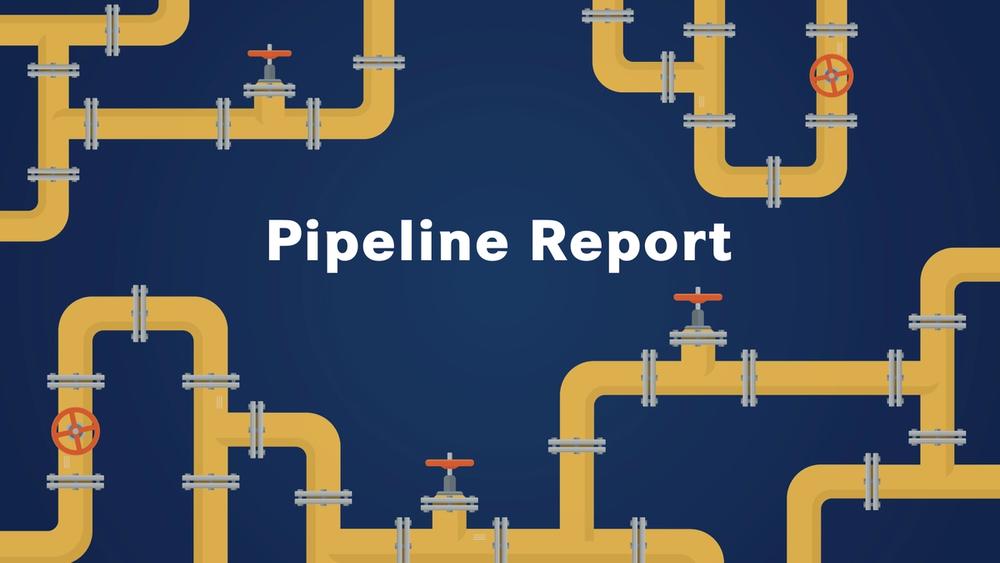
FDA Grants Orphan Drug Designation to ATG-101 for Pancreatic Cancer

The FDA has granted an orphan drug designation to the novel PD-L1/4-1BB bispecific antibody ATG-101 for the treatment of patients with pancreatic cancer.
The FDA has granted an orphan drug designation to the novel PD-L1/4-1BB bispecific antibody ATG-101 for the treatment of patients with pancreatic cancer.1
If approved, the agent could represent the first PD-L1/4-1BB bispecific antibody indicated for the treatment of patients with pancreatic cancer worldwide.
“We are very encouraged by this orphan drug designation from the US FDA and are hopeful that ATG-101 will offer a novel therapeutic to patients with pancreatic cancer. As Antengene’s first in-house developed asset with global rights, ATG-101 has already entered clinical development in Australia, China, and the US. We will strive to accelerate the global clinical development of ATG-101 in efforts to provide a new treatment option to patients around the world,” Bo Shan, PhD, chief scientific officer of Antengene, stated in a press release.
ATG-101 is a novel PD-L1/4-1BB bispecific antibody that was designed to inhibit the binding of immunosuppressive PD-1/PD-L1 and conditionally induce 4-1BB stimulation to activate antitumor immune effectors, while delivering enhanced antitumor activity with an improved safety profile.
In preclinical studies, ATG-101 showed substantial antitumor activity in animal models of resistant tumors in addition to those that had progressed on anti–PD-(L)1 treatment. ATG-101 has also shown a favorable safety profile in Good Laboratory Practice toxicology studies.
ATG-101 is the first PD-L1/4-1BB bispecific antibody entering clinical development in Australia and is currently being evaluated in clinical studies in Australia, China, and the US.
In November 2021, the FDA approved the investigational new drug application for ATG-101, allowing Antengene to initiate the phase 1 PROBE trial (NCT04986865) to evaluate the safety and tolerability of ATG-101 in patients with metastatic and advanced solid tumors and mature B-cell non-Hodgkin lymphoma.2,3
On August 2, 2022, the company announced that the first patient had been dosed in China in the phase 1 PROBE-CN trial.
“Since many patients with advanced cancer are resistant to existing chemotherapy, targeted drugs, and monoclonal antibodies or relapse in a short time after receiving treatment, there is an urgent need for innovative therapies that can improve treatment options. Increasing evidence suggests that bispecific antibodies will become a critical component of cancer therapy. We are excited to have the opportunity to collaborate with a number of prominent investigators in China to conduct the first clinical study of ATG-101, a novel PD-L1/4-1BB bispecific antibody,” Ye Guo, MD, deputy director of medical oncology at Shanghai East Hospital of Tongji University, and principal investigator of the study, said in a press release. “ATG-101 has a high affinity for PD-L1 and can achieve conditional activation of 4-1BB agonist, which is expected to bring a lower risk of systemic toxicity, particularly the hepatotoxicity that has been seen with previous agonists of 4-1BB. We hope that ATG-101 will demonstrate efficacy and safety, and bring a new treatment option to patients with resistant or relapsed cancers,” Guo concluded.
References
- Antengene announces ATG-101 granted orphan drug designation by the U.S. FDA. News release. Antengene. September 18, 2022. Accessed September 19, 2022.
https://prn.to/3Bq3nrW - Antengene receives FDA approval of IND for phase 1 trial of ATG-101 (PD-L1/4-1BB bispecific antibody) in solid tumors and non-Hodgkin lymphoma. News release. Antengene. November 1, 2021. Accessed September 19, 2022.
https://bit.ly/3UlyM7r - A study evaluating the safety and efficacy of ATG-101 in patients with metastatic/advanced solid tumors and mature B-cell non-Hodgkin lymphomas (PROBE). ClinicalTrials.gov. Updated April 13, 2022.
https://clinicaltrials.gov/ct2/show/NCT04986865 - Antengene announces first patient dosed in the PROBE-CN study of ATG-101 (PD-L1/4-1BB bispecific antibody) for the treatment of solid tumors and non-Hodgkin lymphoma. News release. Antengene. August 2, 2022. Accessed September 19, 2022.
https://prn.to/3DJry78






































